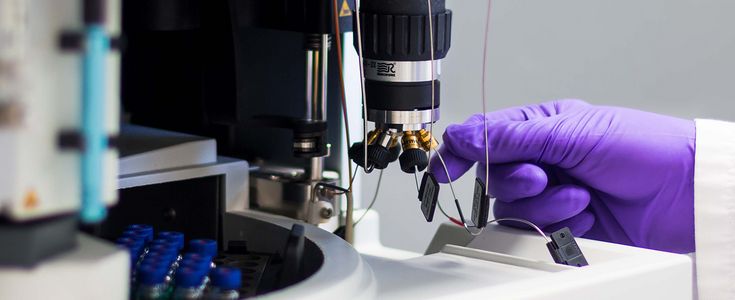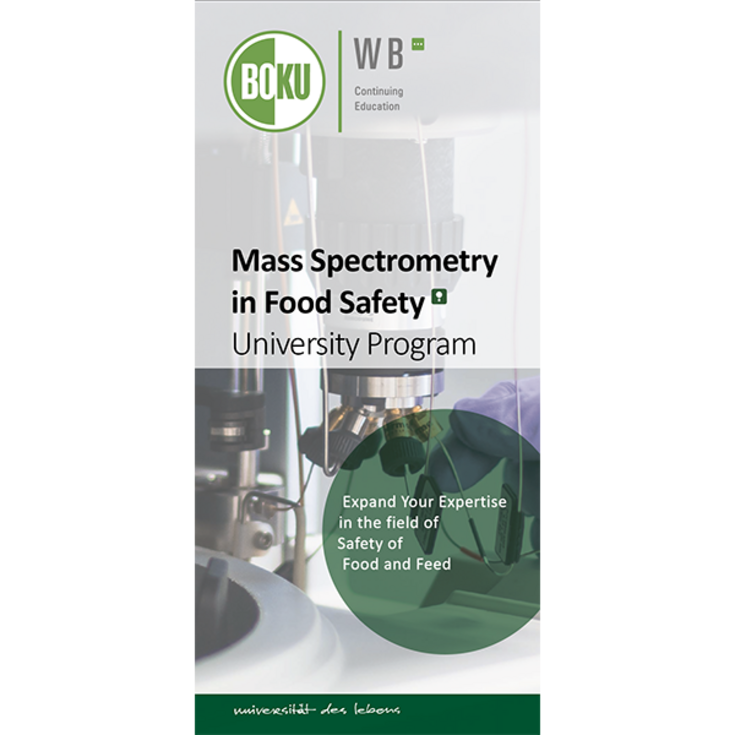University Continuing Education Program »Mass Spectrometry in Food Safety«

Safety of Food and Feed
Expand your expertise with state-of-the art analytical techniques to identify and accurately quantify food contaminants and residues
The increasing concern about the safety of food and feed is a result of the global marketplace, climate change and the rise in public awareness about health and quality. Liquid chromatography coupled to mass spectrometry (LC-MS) is one of the most selective and sensitive ana- lytical technique to unambiguously identify and accurately quantify food contaminants and residues. The multiplexing capability of LC-MS offers the concurrent determination of many different undesired substances in food and feed. While the instrumentation is costly compared to other techniques, analysis time and running costs can be saved by so called multi-toxin methods. In addition, high resolution MS (HRMS) method can be used for screening for both known and currently unknown chemical hazards in food. LC-MS is becoming more widespread and methods are used in food industry as well as for the verification of regulatory limits by national and international authorities.
Program Content
- Theoretical and practical aspects of LC-MS, pros and cons of different instrumentation, method development and validation, and their application to food samples
- sampling and sample preparation and the use of MS for related aspects, e.g. to determine contaminant biomarkers
- analytical issues of food safety by state-of-the-art analysis
Learning Outcomes / Competencies gained
- highly specialized theoretical and practical knowledge to analyse and evaluate various problems in relation to food safety applying mass spectrometry
- communicate this knowledge nationally as well as internationally and to tie in with latest findings in the field of food safety
- use the knowledge gained in order to understand LC-MS acquisition, method development, validation and application
- basic understanding of mass spectrometry and its application to help increase food and feed safety as instrument users or (laboratory) managers
- develop, apply and communicate new skills across the disciplines as a reaction to newly arising threats
- work independently as well as in small research or analytical teams
Graduates find themselves in the position to communicate state-of-the-arts results, MS methods and underlying principles to a professional audience as well as non-specialists. They can respond to questions on a scientific but also social level of food safety.






